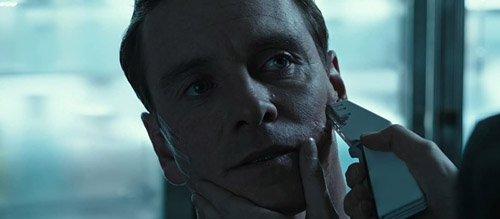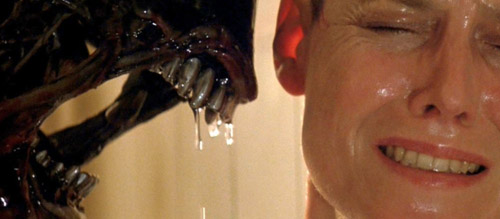Alien Movie Franchise Ranked
The Alien franchise exploded onto cinema screens in 1979 and immediately became a classic.
Following Sigourney Weaver’s Ripley and her team as they encountered the most life threatening alien species to ever be conceived while on their deep space exploration mission, the first instalment offered the perfect mix of science fiction and horror. As the franchise evolved and changed, so did Ripley, her teams, and the dreaded Xenomorph (all of which were replaced for later prequels), the series embracing more ancient mythology and elements of action as it moved through decade after decade.
Now over forty years removed from its initial Ridley Scott directed entry, the Alien franchise has seen six feature releases in total, the on-screen talents of the likes of Sigourney Weaver, John Hurt, Bill Paxton, Pete Postlethwaite, Charles Dance, Winona Ryder, Ron Perlman, Charlize Theron, Idris Elba, Katherine Waterston and Michael Fassbender each contributing to a unique and iconic universe, Ridley Scott, James Cameron and David Fincher being among those who helped to create it.
A franchise with pointed commentary confronting militaristic regimes, Alien has proven itself to be meaningful as well as visceral experience for audiences across many generations, and that is why in this edition of Ranked we’re looking at all six of its films to rank each from worst to best based on artistic merits and cultural significance.
Make sure to let us know your opinion in the comments, and be sure to follow us on Twitter for more updates on articles like this one.
6. Alien: Covenant (2017)
The final prequel and most recent instalment in the series, Alien: Covenant is easily the worst of the lot.
Slammed by audiences and given little leeway by critics, Covenant was the 2nd Alien prequel to be far from what people had come to expect from the franchise, though this one was notably worse, Prometheus at least hosting an element of mystery and a genuine intention to revive the mythos of the universe.
Alien: Covenant follows a completely new team in their pursuit of a “new earth”. When the team end up on the Engineers’ home planet by accident, they are found by a David android who turns out to have killed all the Engineers and is now helping the Xenomorph to evolve. Together, David and the Xenomorph murder almost the entire team.
This film’s twist ending of the evil David replacing the “good” David is entirely predictable, and the ship flying off filled with alien embryos doesn’t at all match up with how the first Alien film starts. This needless inclusion, which contributes at least some of the Xenomorph’s evolution to a humanoid being, removes the unknowable horror of the Xenomorph by reducing its other-worldly evolution to a farmable commodity that humanity itself is partially responsible for.
There are a few cases of cash-grabbing in the Alien franchise, but none are more on the nose than this entry, Alien: Covenant taking away from the incredible story already established across the other films and contributing almost nothing of worth.
Recommended for you: Top 10 Ridley Scott Movies
5. Alien 3 (1992)
Alien 3, while having some astounding points and truly creative elements, still manages to fall short in many aspects.
Taking place directly after Aliens; Ripley, Newt, Hicks and Bishop crash land on a prison planet and only Ripley survives. An alien egg manages to get aboard and a face hugger quickly gets to a dog, the Xenomorph killing prisoners soon thereafter. The plot is very much a rehash of the first two films, only this time in a new place.
The twist of Ripley having an alien queen inside her is interesting but felt very much like a set up for Resurrection, rather than a needed contribution to this film. On top of this, director David Fincher decided against using the iconic puppets of the first two films, instead utilising relatively primitive CGI which was not at all realistic enough and therefore ruined any sense of immersion.
With director and studio at loggerheads over the direction of the film, many believe that Alien 3 could have been much stronger had Fincher been given the control he was given over later, more critically successful films like Fight Club and Seven.




There is no way any other movie be worst that Alien: Resurrection